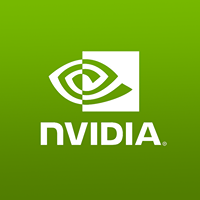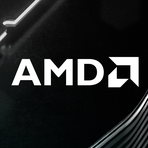Nvidia Under the Microscope: EU's Antitrust Investigation Looms
December 6, 2024, 4:46 pm
Nvidia is a titan in the tech world. With an 84% market share in graphics processing units (GPUs), it stands tall, casting a long shadow over competitors like Intel and AMD. But this dominance has drawn the attention of regulators. The European Union (EU) is now scrutinizing Nvidia's business practices, raising questions about potential antitrust violations.
The EU's antitrust regulators are not just watching from the sidelines. They are actively probing Nvidia's operations. Their focus? Whether Nvidia bundles its products in a way that stifles competition. This investigation could lead to a formal inquiry, a move that would send ripples through the tech industry.
The heart of the matter lies in Nvidia's practices. Reports indicate that the EU has sent out questionnaires to Nvidia's rivals and customers. They want to know if Nvidia offers discounts for bundled purchases of its GPU products. This could indicate a strategy to tighten its grip on the market. The questions are pointed. They ask if customers feel pressured to buy additional software or hardware alongside Nvidia's GPUs.
Nvidia's dominance is not just a matter of market share. It has become the go-to provider for companies diving into generative AI and accelerated computing. The demand for its chips has skyrocketed. Yet, with great power comes great responsibility. The EU is determined to ensure that this power is not abused.
The stakes are high. Antitrust violations in the EU can lead to fines reaching 10% of a company's global annual turnover. For Nvidia, that could mean billions. The French antitrust regulator is already preparing to take action against Nvidia. This adds another layer of complexity to the situation.
Nvidia has responded to these allegations with a firm stance. The company claims it supports customer choice and competes on merit. They argue that their products are best-in-class and can stand alone without bundling. Nvidia emphasizes its commitment to open industry standards, allowing customers to use its products in various configurations.
However, the EU's scrutiny suggests that not everyone is convinced. The regulators are not just looking at Nvidia's words; they are digging deeper. They want to understand the intricacies of Nvidia's contracts and sales practices. Are customers truly free to choose, or are they being nudged toward bundled purchases?
The timing of this investigation is crucial. Nvidia is in the midst of a significant acquisition. The company has proposed a $700 million deal to acquire Run:ai, an artificial intelligence startup. This deal is under the EU's microscope as well. Regulators are examining how this acquisition could impact competition in the GPU market.
The EU's approach is methodical. They are gathering information from various stakeholders. This includes customers who may have experienced Nvidia's sales tactics firsthand. The goal is to paint a clear picture of Nvidia's market behavior.
As the investigation unfolds, the implications for Nvidia could be profound. If the EU finds evidence of antitrust violations, the company could face hefty fines and restrictions on its business practices. This could alter the landscape of the GPU market, affecting not just Nvidia but its competitors as well.
The tech industry is watching closely. Nvidia's actions could set a precedent for how large tech companies operate in Europe. The EU has been increasingly aggressive in its antitrust enforcement. This investigation is part of a broader trend of holding powerful companies accountable.
In the U.S., Nvidia has also faced scrutiny. Regulators are concerned about the company's market power and its impact on competition. The global nature of the tech industry means that actions taken in Europe can have ripple effects worldwide.
For Nvidia, the road ahead is uncertain. The company must navigate the complexities of regulatory scrutiny while continuing to innovate. The demand for AI and accelerated computing shows no signs of slowing. Nvidia's ability to adapt to these challenges will be crucial.
In conclusion, Nvidia's situation is a classic tale of power and responsibility. The company's dominance in the GPU market has brought it success, but it has also attracted the attention of regulators. The EU's investigation into Nvidia's business practices is a reminder that no company is above scrutiny. As the tech landscape evolves, the balance between innovation and competition will be more important than ever. Nvidia's next moves will be closely watched, not just by regulators, but by the entire tech industry. The outcome of this investigation could shape the future of the GPU market and set the tone for how tech giants operate in a competitive landscape.
The EU's antitrust regulators are not just watching from the sidelines. They are actively probing Nvidia's operations. Their focus? Whether Nvidia bundles its products in a way that stifles competition. This investigation could lead to a formal inquiry, a move that would send ripples through the tech industry.
The heart of the matter lies in Nvidia's practices. Reports indicate that the EU has sent out questionnaires to Nvidia's rivals and customers. They want to know if Nvidia offers discounts for bundled purchases of its GPU products. This could indicate a strategy to tighten its grip on the market. The questions are pointed. They ask if customers feel pressured to buy additional software or hardware alongside Nvidia's GPUs.
Nvidia's dominance is not just a matter of market share. It has become the go-to provider for companies diving into generative AI and accelerated computing. The demand for its chips has skyrocketed. Yet, with great power comes great responsibility. The EU is determined to ensure that this power is not abused.
The stakes are high. Antitrust violations in the EU can lead to fines reaching 10% of a company's global annual turnover. For Nvidia, that could mean billions. The French antitrust regulator is already preparing to take action against Nvidia. This adds another layer of complexity to the situation.
Nvidia has responded to these allegations with a firm stance. The company claims it supports customer choice and competes on merit. They argue that their products are best-in-class and can stand alone without bundling. Nvidia emphasizes its commitment to open industry standards, allowing customers to use its products in various configurations.
However, the EU's scrutiny suggests that not everyone is convinced. The regulators are not just looking at Nvidia's words; they are digging deeper. They want to understand the intricacies of Nvidia's contracts and sales practices. Are customers truly free to choose, or are they being nudged toward bundled purchases?
The timing of this investigation is crucial. Nvidia is in the midst of a significant acquisition. The company has proposed a $700 million deal to acquire Run:ai, an artificial intelligence startup. This deal is under the EU's microscope as well. Regulators are examining how this acquisition could impact competition in the GPU market.
The EU's approach is methodical. They are gathering information from various stakeholders. This includes customers who may have experienced Nvidia's sales tactics firsthand. The goal is to paint a clear picture of Nvidia's market behavior.
As the investigation unfolds, the implications for Nvidia could be profound. If the EU finds evidence of antitrust violations, the company could face hefty fines and restrictions on its business practices. This could alter the landscape of the GPU market, affecting not just Nvidia but its competitors as well.
The tech industry is watching closely. Nvidia's actions could set a precedent for how large tech companies operate in Europe. The EU has been increasingly aggressive in its antitrust enforcement. This investigation is part of a broader trend of holding powerful companies accountable.
In the U.S., Nvidia has also faced scrutiny. Regulators are concerned about the company's market power and its impact on competition. The global nature of the tech industry means that actions taken in Europe can have ripple effects worldwide.
For Nvidia, the road ahead is uncertain. The company must navigate the complexities of regulatory scrutiny while continuing to innovate. The demand for AI and accelerated computing shows no signs of slowing. Nvidia's ability to adapt to these challenges will be crucial.
In conclusion, Nvidia's situation is a classic tale of power and responsibility. The company's dominance in the GPU market has brought it success, but it has also attracted the attention of regulators. The EU's investigation into Nvidia's business practices is a reminder that no company is above scrutiny. As the tech landscape evolves, the balance between innovation and competition will be more important than ever. Nvidia's next moves will be closely watched, not just by regulators, but by the entire tech industry. The outcome of this investigation could shape the future of the GPU market and set the tone for how tech giants operate in a competitive landscape.


